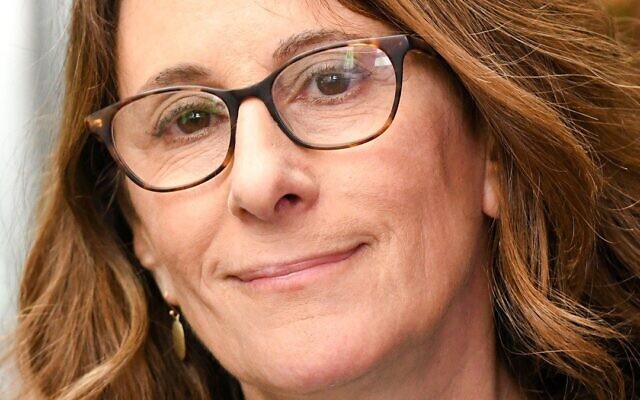“My movies are all really personal,” says Nicole Holofcener
Her latest film is all about her insecurities
Ever since making her first independent feature film, Walking and Talking, in 1996, the acclaimed American writer-director Nicole Holofcener has used her own life as inspiration for her movies. “They are not factually autobiographical,” she says, “but they are still all really personal.”
What, then, would it be like to find out that someone very close to her doesn’t like her work? Could they separate how they feel about it and her? Given that the work is a reflection of her personality, how would that even be possible? Such questions inspired her funny and achingly perceptive new film You Hurt My Feelings.
In it she homes in on her insecurities as an artist by casting Veep and Seinfeld‘s Julia Louis-Dreyfus as a neurotic author, Beth, who is broken by the discovery that her therapist husband has been lying about liking the book she is writing. She toyed with the character being an actor; however, when Holofcener asked Louis-Dreyfus, “writer or actor?”, she emphatically said the former.
“Because she’s an actress, I think it was too close. Too self-reflective,” suggests Holofcener. “But I’m willing to out myself anytime.”
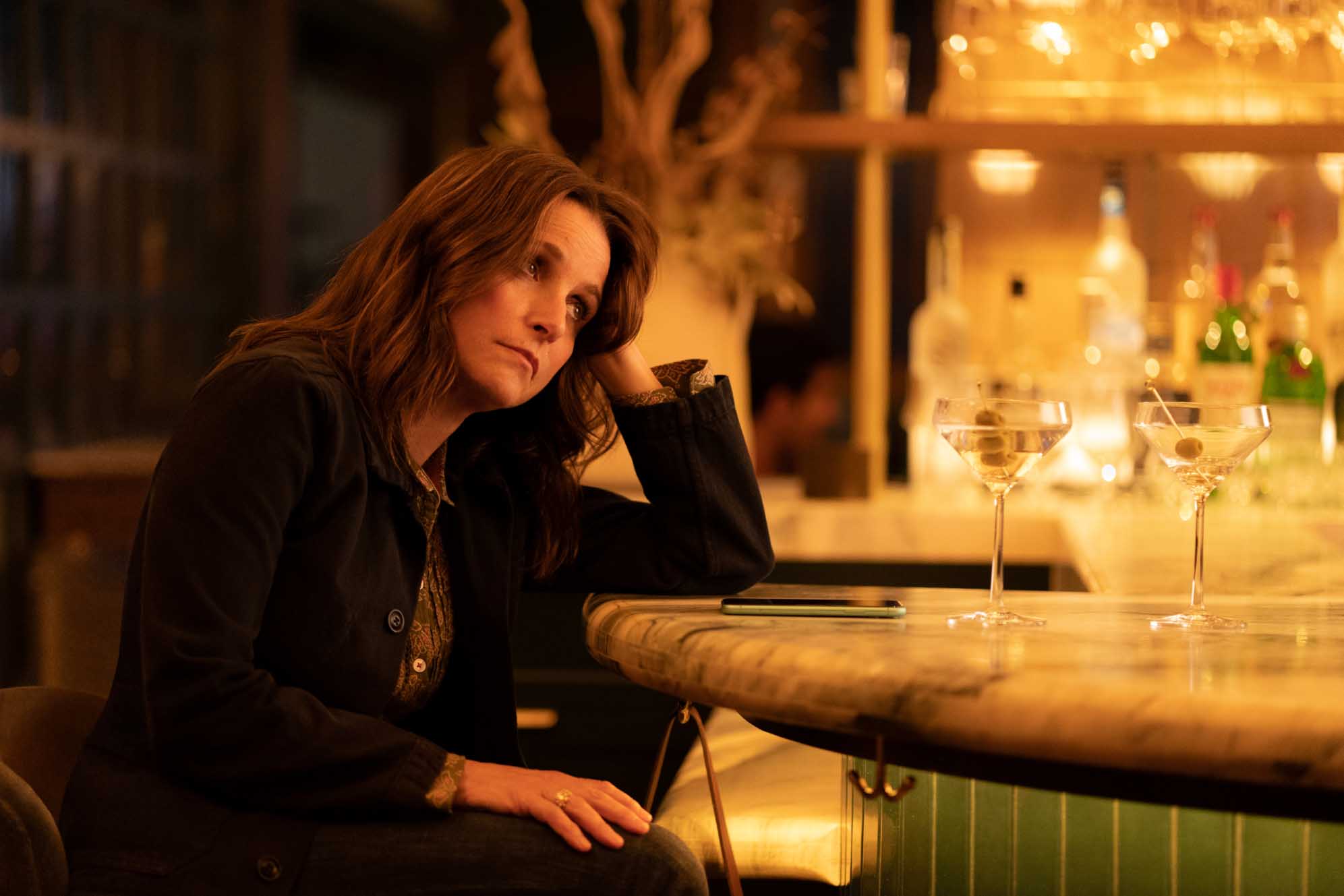
Her films usually contain something that she was feeling or experiencing or struggling with. A scene in the mid-life rom-com Enough Said (2013), in which a mother, played by Louis-Dreyfus, says goodbye to her daughter at the airport as she’s leaving for college, for example, expressed her “dread” about what it might be like when she came to do it herself.
“I was literally crying at the monitor watching her drop her child off,” says Holofcener. “And I could watch that scene now and start to tear up.”
Similarly, Please Give (2010), in which a middle-class woman feels increasingly uneasy about profiting from selling dead people’s furniture, dealt with her “white privilege guilt, which I still fully have,” she admits. “I’m still that character. So while it’s really a blast to watch actors act out my issues and emotions, unfortunately nothing is cathartic.”
The legacy of childhood and of what parents do, unconsciously and consciously, to their children, runs through some of Holofcener’s films. In You Hurt My Freelings, Beth is haunted by the verbal abuse that she received from her father as a child, which Holofcener initially treats with humour, then gives emotional weight to, in her typically funny/sad style. Meanwhile, Beth’s son accuses her of setting him up to fail by overrating him in certain things, making him unsure of his own abilities and worth. In Please Give, a woman’s abrasive behaviour is partly explained by the shock of her mother’s suicide.
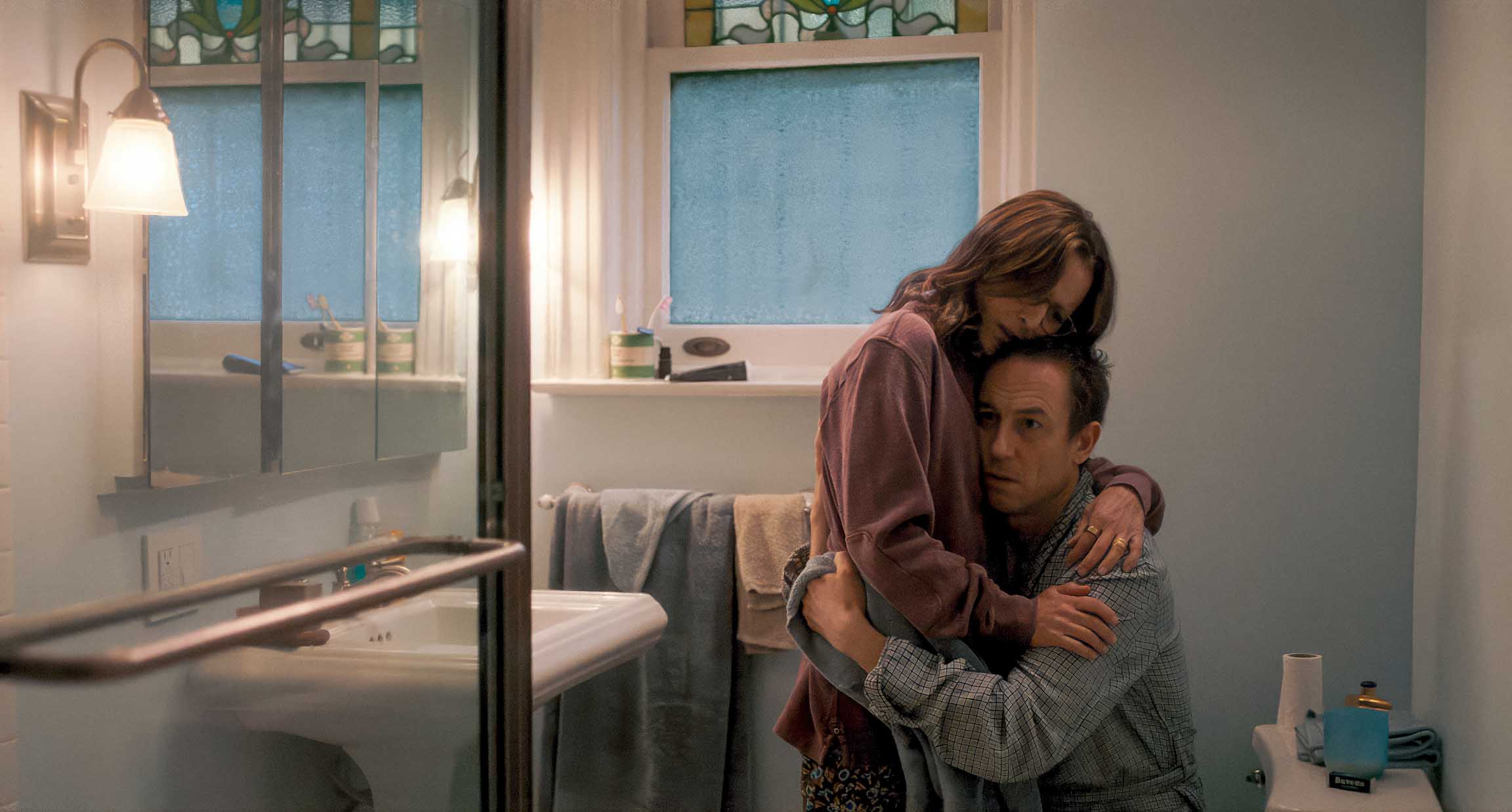
Holofcener, who was born in New York and moved to Hollywood at the age of eight with her set decorator mother, Carol Joffe, and movie producer stepfather, Charles Joffe, had “a good childhood and loving parents”. But, she says, “my kids are at an age where they’re very articulate about how I f*cked them up. And I want to hear it. It’s just hard to believe that the things I’ve said to them, with love and goodwill, somehow affected them in the opposite way. It’s like, ‘Oh f*ck.’ But you’re just gonna f*ck them up. You don’t know what you’re doing. I don’t know what I’m doing. I’m doing my best.”
She had small traumas during childhood, “like everybody else. My parents divorced when I was really young, blah, blah, blah” – but nothing like her characters’. Nevertheless, she is extremely sensitive, and says she can imagine what it might be like from “the pain that I’ve felt just being alive”.
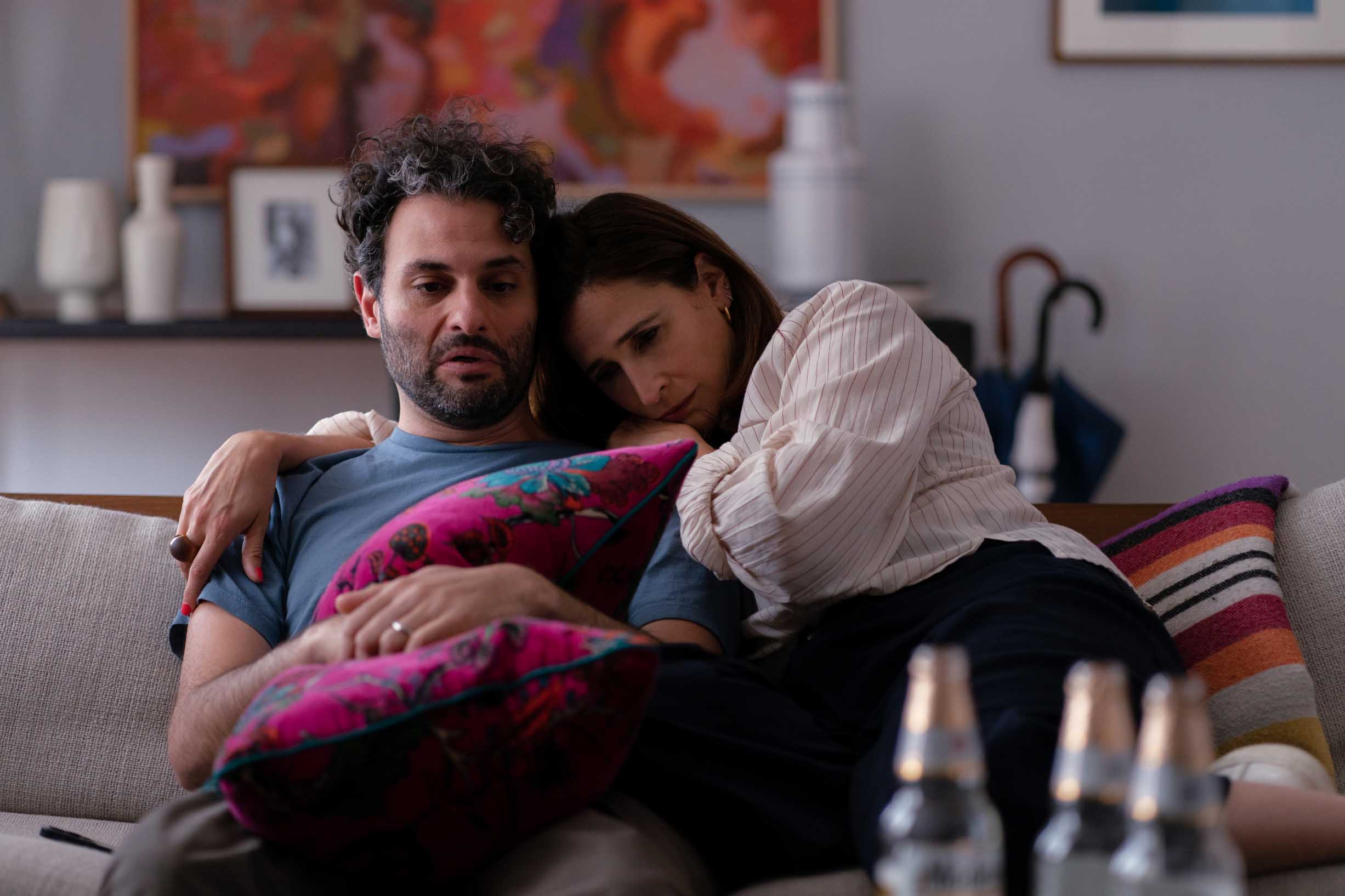
I recall to her that Emma Thompson told me that to be a good artist, you do not need a hide like an elephant but “slightly one less skin”. She said, “You’ve got to be sensitive, and you’ve got to be wounded, and then you’ve got to get up.” Holofcener nods.
“It’s funny she used that analogy because I’ve often wished I had thicker skin, even just in life. Everything gets to me really deeply. A little too deeply, sometimes. Having such thin skin can destroy you over and over and over again. Like I really want people to like my work and when they don’t, it crushes me a little bit. But, if I had really thick skin, if I didn’t have really thin skin, I don’t think I’d be in it fully and be willing to reveal myself this way.”
Her humanity contrasts with the AI that writers striking in America want to see banned from being used by studios for writing or rewriting source material. Holofcener writes her own scripts (she also co-wrote Ridley Scott’s The Last Duel, with Matt Damon and Ben Affleck), and is concerned about AI.
She is more worried, though, “that this planet is going to melt. I’m worried that I’m gonna get shot. I’m worried that my kids are gonna get shot. AI writing screenplays is like this big (ie small, she suggests, with forefinger and thumb) compared to the mess and the hate that is taking over my country. I’m worried about that. But I think I’m just more globally depressed about the state of the world and the state of this country. America is a mess. It’s upsetting.”
She is culturally Jewish and had a largely secular upbringing – “I grew up with some Jewish traditions, like Passover and we celebrated both Chanukah and Christmas, so I really cashed in” – but “now more than ever I feel antisemitism, and it’s scary,” she says. “So, I feel very Jewish.”
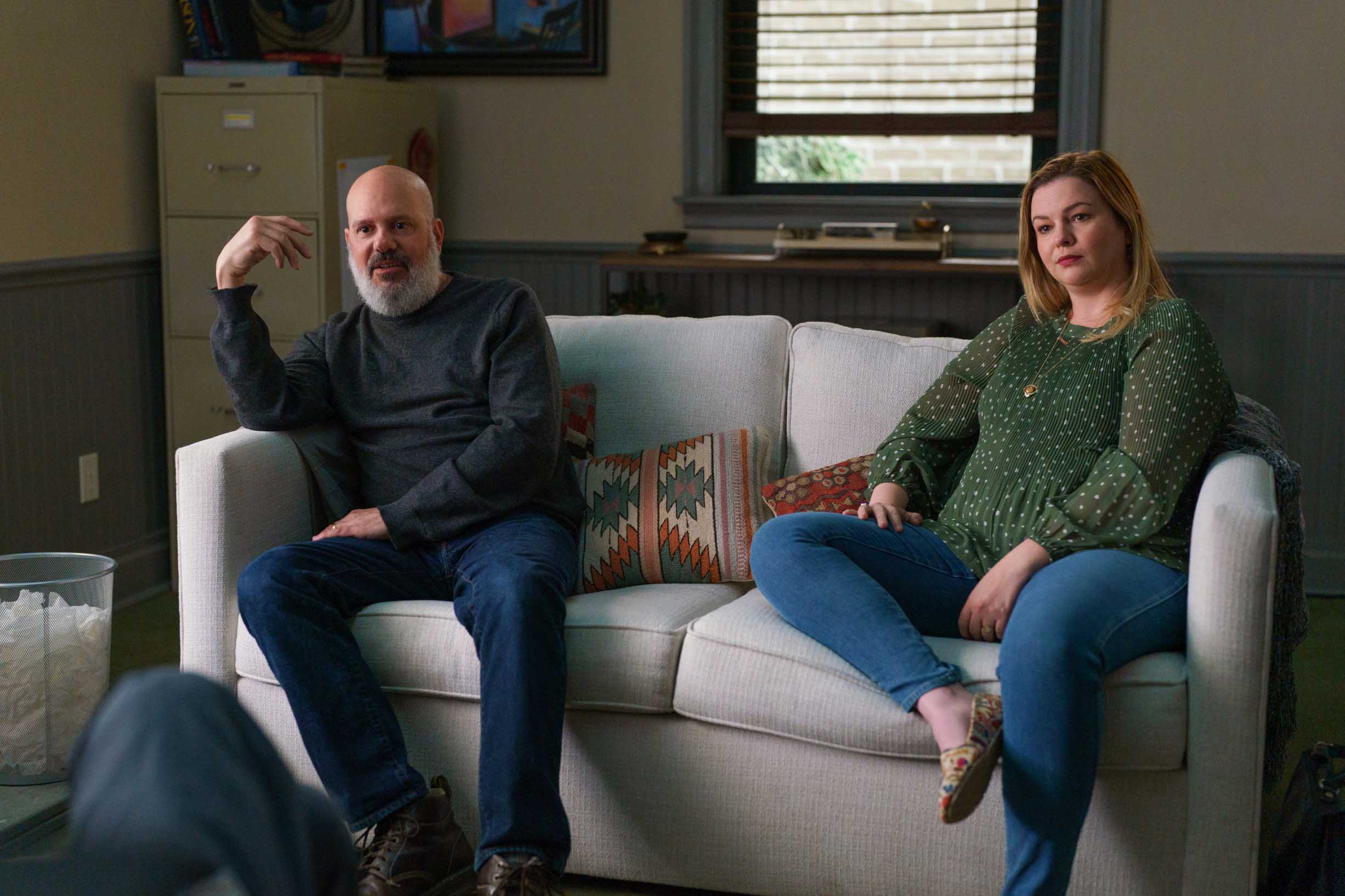
Times are changing and in You Hurt My Feelings, Beth is told that she is now competing with new, younger voices, from different backgrounds. I wonder how the landscape has changed for Holofcener since her debut in 1996. “Now I’m old as f*ck, you mean?” she asks wryly.
She was a late starter at 35 when she made her first feature, and is aware of a new generation coming through. “And while I have the experience or the success or whatever, I think youth is more attractive in every way. And that’s just the way things are. It’s their turn.”
Even so, she does not think anyone is having an easy time at the moment, whatever their age.
“I just would have hoped that at my stage in my career it would be easier,” says Holofcener. “But I still got [You Hurt My Feelings, her seventh feature] made, so I feel really lucky. I have great producers who have really helped me and I get to cast who I want, so that’s a blessing. I’ll take what I can get. It’s more than some people can say.”
You Hurt my Feelings is available on Prime Video from 8 August

Thank you for helping to make Jewish News the leading source of news and opinion for the UK Jewish community. Today we're asking for your invaluable help to continue putting our community first in everything we do.
For as little as £5 a month you can help sustain the vital work we do in celebrating and standing up for Jewish life in Britain.
Jewish News holds our community together and keeps us connected. Like a synagogue, it’s where people turn to feel part of something bigger. It also proudly shows the rest of Britain the vibrancy and rich culture of modern Jewish life.
You can make a quick and easy one-off or monthly contribution of £5, £10, £20 or any other sum you’re comfortable with.
100% of your donation will help us continue celebrating our community, in all its dynamic diversity...
Engaging
Being a community platform means so much more than producing a newspaper and website. One of our proudest roles is media partnering with our invaluable charities to amplify the outstanding work they do to help us all.
Celebrating
There’s no shortage of oys in the world but Jewish News takes every opportunity to celebrate the joys too, through projects like Night of Heroes, 40 Under 40 and other compelling countdowns that make the community kvell with pride.
Pioneering
In the first collaboration between media outlets from different faiths, Jewish News worked with British Muslim TV and Church Times to produce a list of young activists leading the way on interfaith understanding.
Campaigning
Royal Mail issued a stamp honouring Holocaust hero Sir Nicholas Winton after a Jewish News campaign attracted more than 100,000 backers. Jewish Newsalso produces special editions of the paper highlighting pressing issues including mental health and Holocaust remembrance.
Easy access
In an age when news is readily accessible, Jewish News provides high-quality content free online and offline, removing any financial barriers to connecting people.
Voice of our community to wider society
The Jewish News team regularly appears on TV, radio and on the pages of the national press to comment on stories about the Jewish community. Easy access to the paper on the streets of London also means Jewish News provides an invaluable window into the community for the country at large.
We hope you agree all this is worth preserving.


